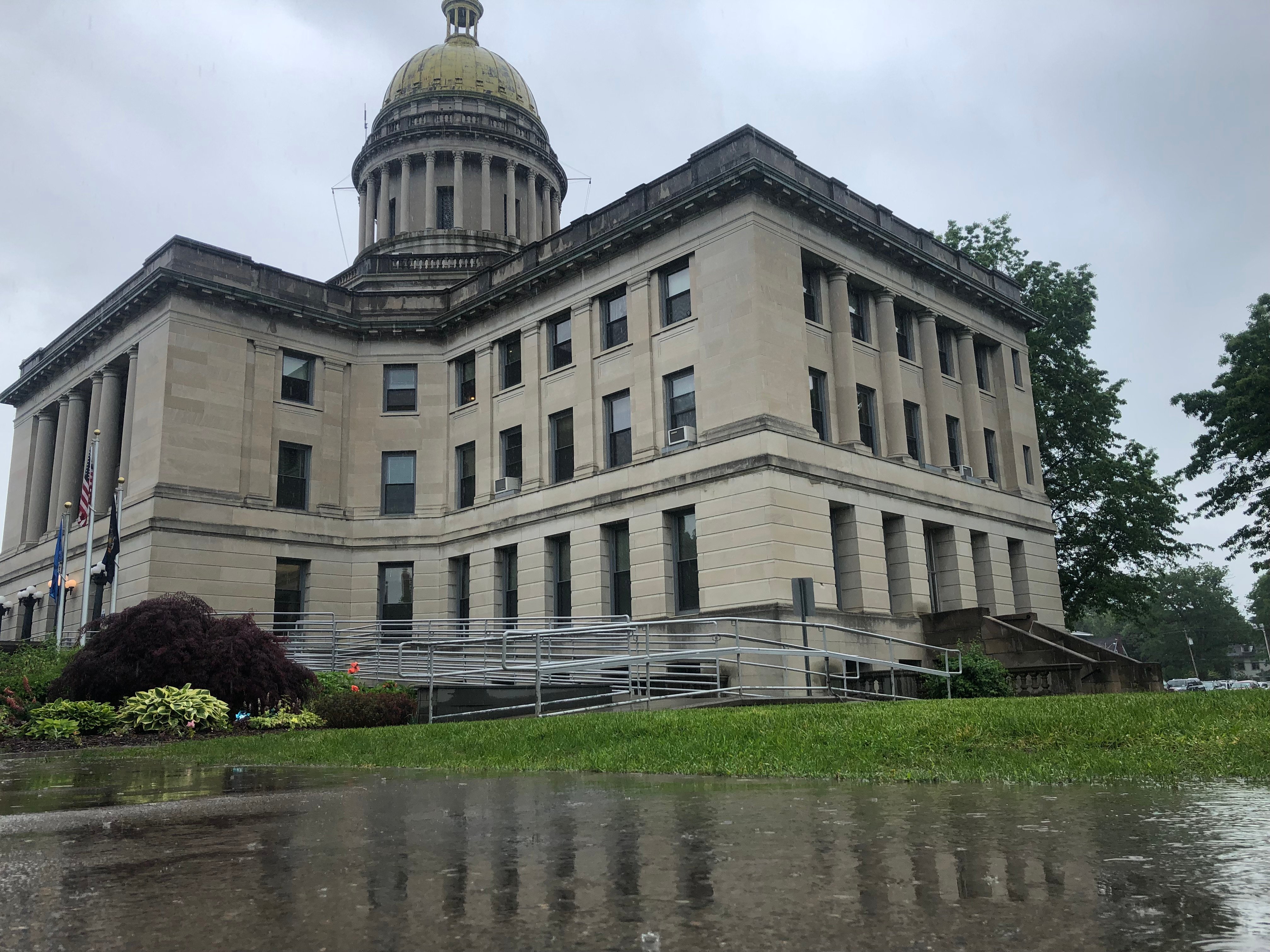After multiple arrests stemming from a three-day burglary spree, an accused city man had a hot Thanksgiving dinner in jail, rather than spending the holiday hungry and homeless.
Michael P. McCloy, 27, was arrested Tuesday afternoon for burglarizing the Main Street Salvation Army during the previous night, as well as the city hospital’s COVID-19 testing site between Sunday night and Monday morning. McCloy, who is described by police as a homeless, unemployed drug addict, was arraigned Tuesday night on $1,000 cash, $2,000 bond or $5,000 partially secured bond.
At a hearing Wednesday afternoon, City Judge Larry Knickerbocker kept McCloy’s bail intact and scheduled another Dec. 2 hearing to review arguments regarding McCloy’s status under the new laws enacted in January. At issue is whether or not there is enough evidence to hold McCloy under the new provisions that aim to release defendants under the least restrictive conditions possible while ensuring a defendant’s return to court.
McCloy is facing a string of burglary charges, starting with his arrest for stealing 15 laptops on Oct. 2 from St. Mary’s School on North Main Street. Over the next eleven days, McCloy was charged with misdemeanors in connection with two October city home burglaries, according to the Cortland Police Department. From Saturday to Tuesday, McCloy was charged with burglarizing the Homer Avenue Dollar General, Salvation Army and hospital, as well as having stolen items taken in two residential city burglaries and the larceny of a parked vehicle, said police.
McCloy was caught on video tape in the Salvation Army, Dollar General and St. Mary’s School burglaries, according to the Cortland Police Department.
Despite the mounting charges, city judges repeatedly released McCloy after his arrests in accordance with the bail reform legislation.
But McCloy’s arrests on new felony charges — while released pending hearings on his October felony charge — allows a city judge to send him to jail in lieu of bail or bond, argued Assistant District Attorney Christopher Simser Sr.
Citing a little-used subsection of the bail reform legislation, Simser noted that defendants can be held on bail or bond if they are arrested on a felony charge, released, and then commit a new felony while free.
But McCloy’s defense attorney argued that bail can only be set if the court determines there is “clear and convincing evidence” the new felony occurred. That’s a harder standard to meet than the “reasonable cause” benchmark used to accuse a defendant of a felony and that Simser argued applied to McCloy’s bail status.
“According to the Supreme Court in Colorado v. New Mexico, 467 U.S. 310 (1984), ‘clear and convincing’ means that the evidence is highly and substantially more likely to be true than untrue,” notes Cornell’s Legal Information Institute. “The fact finder must be convinced that the contention is highly probable.”
An analysis by The Cortland Voice noted that both phrases are used in the new bail statute.
“The court, for good cause shown, may revoke the order of recognizance, release under non-monetary conditions, or bail,” states the law’s 530.60 section. But then it goes on to say, “clear and convincing evidence” is used to determine if a defendant committed a second felony while free.
Ultimately, it will be up to Judge Knickerbocker to determine whether or not McCloy is held on bail after next week.






